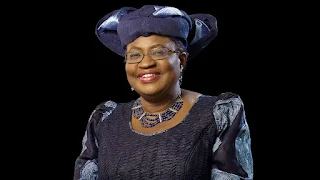 |
| WTO Chief Dr. Ngozi Okonjo-Iweala Warns of Increasing Protectionism and Its Impact on Global Trade Image credit: World Trade Organization |
Global trade is currently facing significant challenges, according to Dr. Ngozi Okonjo-Iweala, Director General of the World Trade Organization (WTO). She highlights rising protectionism and fragmentation as key issues undermining WTO rules and threatening the resilience and growth of economies worldwide.
Recent actions by the European Union (EU) and the United States have exemplified these trends. The EU has imposed provisional tariffs of up to 37.4% on Chinese electric vehicles (EVs), following the US's 100% tariffs introduced in May. Both the EU and US accuse China of unfairly subsidizing its EV sector, leading to concerns over job losses in the West. President Biden has also increased import taxes on various Chinese products, including EV batteries and solar panel components, in an effort to protect US jobs and industries.
The WTO reports that global trade volume fell by 1.2% last year, marking only the third decline in 30 years, due to high inflation and interest rates. The International Monetary Fund (IMF) attributes these issues to recent global events, such as the pandemic and Russia's invasion of Ukraine, which have reshaped economic and trade relations. Countries now prioritize economic and national security concerns in their trade and investment decisions, leading to a growing divide between Western powers and the China-Russia axis.
Dr. Okonjo-Iweala warns that this fragmentation could be costly, with WTO research estimating a potential 5% reduction in the global economy, while the IMF suggests it could lead to a $7.4 trillion loss in output in the long run. She notes that trade between like-minded blocs is growing faster than across blocs, which could have severe economic repercussions.
The EU's tariffs on Chinese-made EVs follow a surge in their exports to Europe, which increased from $1.6 billion in 2020 to $11.5 billion last year. Chinese EV manufacturers like BYD, Geely, and SAIC have benefitted from substantial government support, but Jens Eskelund, President of the European Union Chamber of Commerce in China, argues that they are now competitive on their own. He points out that Europe remains a more open market to Chinese companies compared to the restrictive environment for European firms in China, a situation that needs addressing.
The EU aims to reduce its economic dependence on China, as highlighted by European Commission President Ursula von der Leyen's call to "de-risk not de-couple" relations with China. Concerns include China's use of sensitive technology for military purposes and its support for Russia. Companies like Ikea, Nike, and Apple are also seeking to lessen their reliance on China.
The EU and China plan to discuss the potential EV tariffs, but Chinese state media has reported that retaliatory measures on EU goods are being considered. Meanwhile, global trade faces additional barriers, such as disruptions in the Panama Canal due to insufficient rainfall and reduced traffic through the Suez Canal because of attacks on commercial ships by Houthi rebels.
Rolf Habben Jansen, CEO of German shipping giant Hapag-Lloyd, notes that these disruptions have increased shipping rates by 30% to 40%, potentially pushing inflation up as central banks work to control it. Dr. Okonjo-Iweala warns that such increases could be detrimental to consumers but remains optimistic about trade's resilience.
She acknowledges that some WTO rules may need to change to address climate change effectively, emphasizing the need to avoid a repeat of the retaliatory tariffs seen in the 1930s, which led to widespread economic decline.










0 Comments